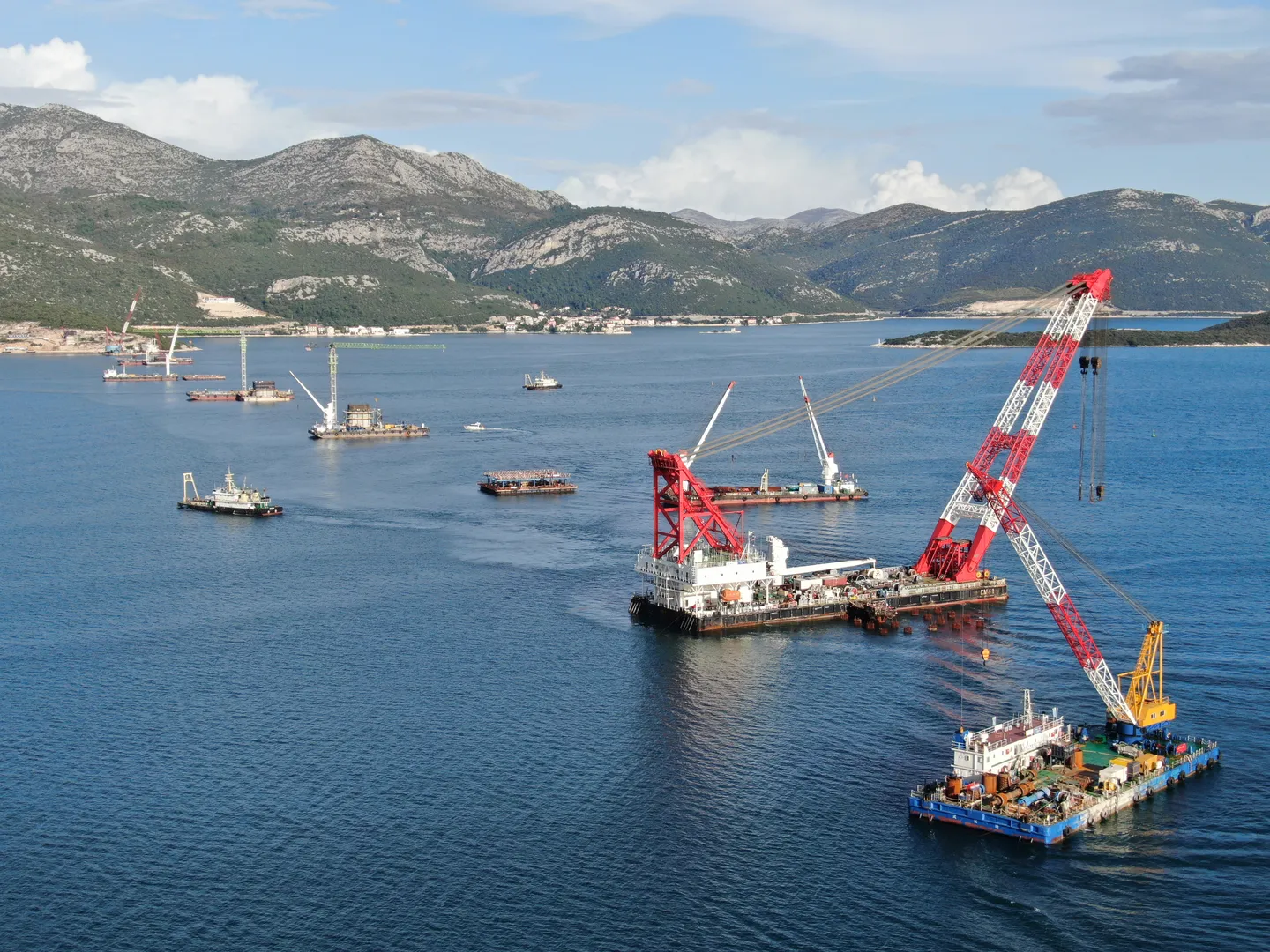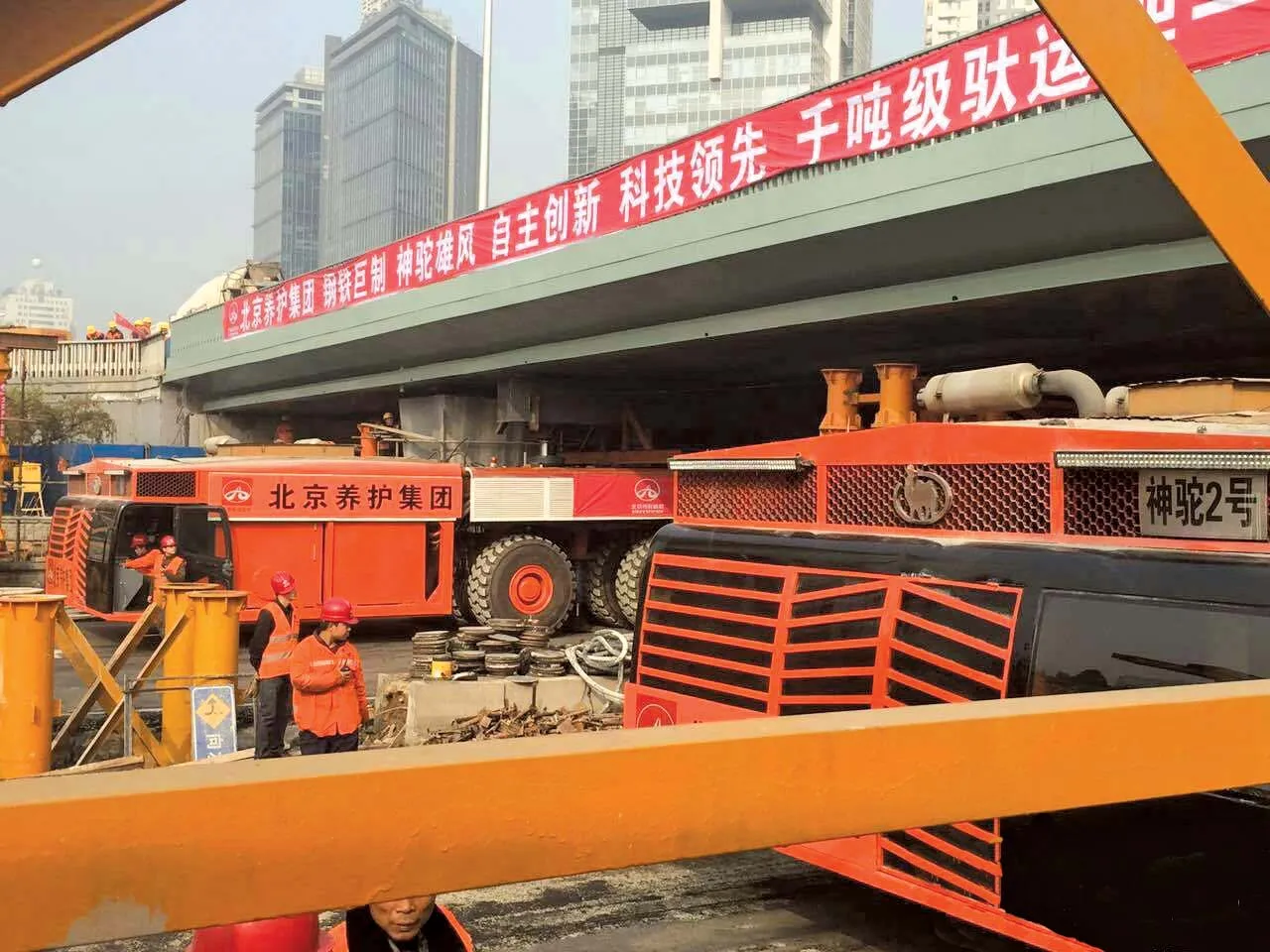
The first pier for Croatia’s Peljesac Bridge is rising above the waterline of the Bay of Mali Ston, according to reports by Croatian media.
The bridge is being built by China Road and Bridge Corporation (CRBC), part of the Chinese state-owned China Communications Construction Company. CCCC was formed through the merger of CRBC and China Harbour Engineering in 2005.
CRBC started construction in the bay in January 2019. The contract, a US$340m project, is the first time that a Chinese company had won a bid for a project funded by the European Union. It is also part of China’s Belt and Road Initiative to fund and construct major infrastructure between China through Asia to the Middle East, Africa and Europe.
Strabag, which bid for the project, was chosen for only the access roads to the bridge and cited unfair competition by a state funded company. The major issue was CRBC’s bid being around 20% cheaper than Strabag’s bid. A legal challenge to have the contract overturned was unsuccessful.
Croatian media recently reported that prime minister Andrej Plenkovic, the minister of transport and other cabinet members visited the construction site. Plenkovic praised the workers and companies for using safe working methods during the ongoing pandemic.
Around 80% of the cost will be co-financed by the European Commission’s body for large infrastructure projects, JASPERS - Joint Assistance to Support Projects in European Regions.
According to construction plans accepted in 2007, the project is for a 21m-wide cable-stayed bridge carrying four lanes across the entrance to Mali Ston Bay. The main span would be 568m and likely be the second largest in Europe. The two main pylons would reach 170m above sea level.
The project also calls for access roads at both sides of the bridge. Work would include two tunnels on Pelješac island - one nearly 2.2km long and the other at 450m - as well as two smaller bridges on Pelješac, one 500m long and the other only 50m.
Once completed, this bridge would physically link Peljesac to mainland Croatia, which is now interrupted by a strip of land belonging to Bosnia and Herzegovina.
Start of construction had been continuously delayed until shipping rights and boundaries were better defined between the two countries.
There had been concerns by Bosnia about possible obstruction of cargo ships bound into the bay for the Bosnian city of Neum. The Bosnian government is planning to upgrade the infrastructure of Neum, the only Adriatic Sea access for Bosnia along its brief 20km of coastline.








